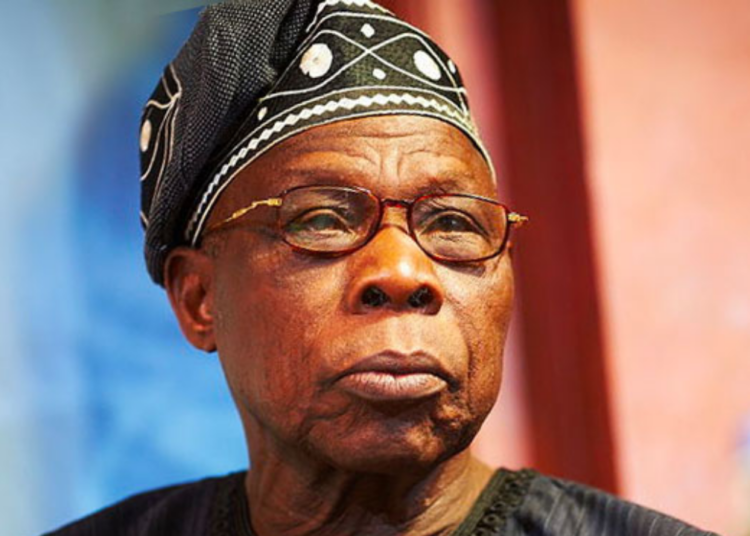Former President Olusegun Obasanjo has attributed Africa’s stagnation to a combination of poor leadership, endemic corruption, overdependence on foreign aid, and the continent’s adoption of a democratic model ill-suited to its realities.
Speaking at the 32nd Annual Meeting of Afreximbank in Abuja on Thursday night, Obasanjo argued that Western liberal democracy, inherited from colonial powers, has failed to deliver the kind of governance outcomes that Africa desperately needed. “We must interrogate this borrowed system and reimagine a governance structure that works for us, one rooted in our realities, values, and aspirations,” he stated.
The former president cited Ethiopia as a powerful example of what is possible when countries take bold, home-grown approaches to development. “If Ethiopia can transform itself into a wheat-exporting country, so can others. That’s the kind of story we need to replicate continent-wide,” Obasanjo said. He estimated that Africa could save up to $40billion annually by achieving food self-sufficiency.
Obasanjo called on governments across the continent to prioritise investment in agriculture—not only as an economic imperative but also as a means to ensure food security, reduce reliance on imports, and create jobs for millions of citizens.
In addition, he stressed the importance of enhancing intra-African trade through the use of local currencies for cross-border transactions. According to him, reducing the continent’s dependency on the US dollar in trade would strengthen regional economic resilience and promote financial sovereignty.
Obasanjo urged African leaders to embrace transformative reforms with urgency and conviction. He said African countries “need bold action, internal reflection, and the political courage to change the systems that are failing us. Until the lions begin to move, the rest of the continent will remain stuck in place.”
Reflecting on the state of the continent, Obasanjo lamented that Africa’s so-called “lions”—its most populous and resource-endowed nations—have underperformed due to structural inefficiencies and misguided governance.
He noted that countries such as Nigeria, Egypt, Ethiopia, the Democratic Republic of Congo, and South Africa should be spearheading Africa’s development, leveraging their demographic and economic strengths.
Yet, according to Obasanjo, progress has been inconsistent. While he acknowledged some positive strides by Egypt, he lamented that the others have either stagnated or regressed in the past three decades, often marked by cycles of advancement followed by setbacks.
He said the key nations were not moving fast enough—either politically or economically—to uplift the broader continent. Without their leadership and progress, he warned, the vision of collective African advancement would remain elusive.
Obasanjo also criticised the widespread tendency among African leaders to rely on external loans rather than mobilising domestic resources. “We all rush to China to borrow $20billion, yet one African country alone has the capacity to generate that kind of money domestically. But we won’t because we’re addicted to foreign help. That is not how we will move forward,” he said.
He attributed this reliance on foreign aid to a deep-seated lack of economic literacy among many African leaders. “How much of the world do our leaders even understand? If we understand it, we will get things right not just nationally, but at the community, subregional, and continental levels,” he remarked.
Furthermore, Obasanjo criticised the degeneration of democracy across the continent into what he termed “monetocracy”—a system where financial muscle dictates electoral outcomes. He condemned the prevailing “winner-takes-all” mindset that sidelines opposition voices and erodes the integrity of democratic institutions and processes.






